
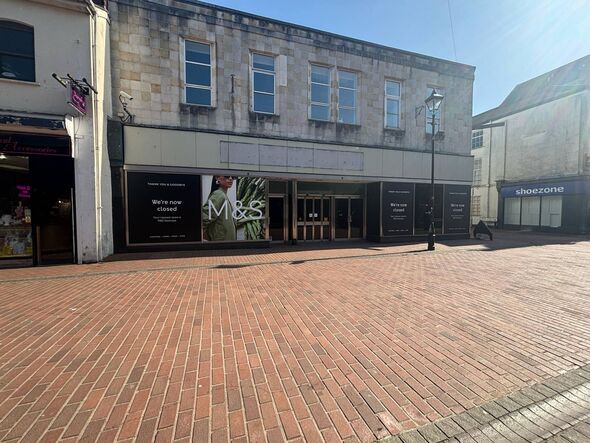
Different generations have their own version of what my hometown used to be. My parents rave about the 1980s and 1990s, saying it was our "golden era", when the streets were packed with fans heading to its famous rugby ground to watch what was once one of the country's greatest teams.
My grandmother tells me about the shops that once lined the main thoroughfare, adding: "There was not one shop boarded up."
I'm in my twenties but I too remember a town full of life and activity when I was a child, when there were hardly any empty shops. Woolworths was always busy, and shops like Next, Topshop and Dorothy Perkins were staples.
I still remember popping into Store Twenty One on the corner, or losing track of time in Izzits, enamoured by its quirky jewellery and colourful bags as a pre-teen. Everyone seems to hold a different piece of Neath, on the south coast of Wales not far from Swansea, in their memories-and all of them tell a story about what the town once was.
During a recent trip on a random Wednesday afternoon, the town centre was undeniably busy. The sun had drawn people out, and the Cadno Lounge bar was bustling, with customers spilling out onto the patio.
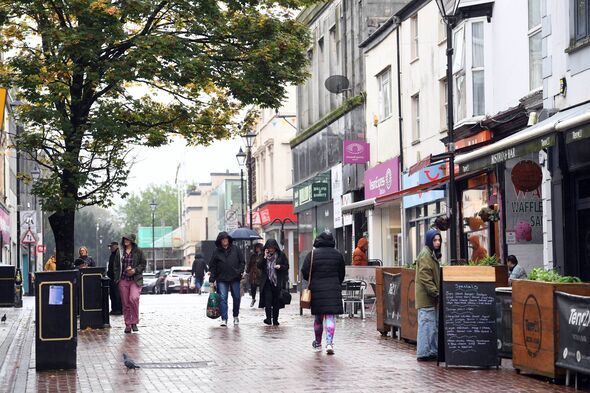
Just next door, fitness fanatics were coming and going from the new leisure centre and familiar names like Boots, Poundland and The Range continued to pull in customers. It was a snapshot of a town that, while quieter than before, still has some life in it.
Yet Neath's high street, like so many others across the UK, has faced a steady decline in recent years. A number of major retailers have closed their doors, including Next, B&Q, Wilko and Marks and Spencer. Even smaller independents, like Made Happy, a much-loved shop that sold sweet gifts and homeware, have had to call it a day. The space once occupied by that business has hosted a variety of businesses over the years, from T Mobile in 2009 to Salvage in 2018.
Just a few doors down, the shopfront now home to a travel agency has also seen a string of changes. In 2009, it was Girly Things, not long after that it transformed into a cafe but that didn't last, leaving the shopfront empty for a time. In 2021, it became Billy's Bar and Restaurant and now it's Paul Cranny Travel, which has occupied the space for the past few months.

Some of these closures have left noticeable gaps in the town centre and have taken with them the consistent footfall that once supported smaller, independent traders. Each shop that shuts not only changes the physical landscape but affects the rhythm of the town.
However if there's one place that still feels like the beating heart of Neath, it's the General Market, home to a number of family-run stalls, many of which have been there for well over fifty years. These businesses have witnessed Neath's evolution first hand.
For me, the market was always special. I spent hours there as a child with my grandmother; she'd stop at Mark's vegetable stall while I eyed up the hard sugar mice at the sweet stall. It was full of chatter, everyone knew each other by name, comfort and familiarity was in the air.
Today, it looks almost exactly as I remember it as a child, though one of the first things I noticed was the empty shell of what used to be the paper stall, which I learned had shut at least three years ago.

Like the high street, Neath's market has seen its fair share of closures. Several stalls now sit empty, including the little Welsh shop and the longstanding card shop, which had been part of the market for more than sixty years. Other shutters were down, despite it being mid-afternoon.
I spoke to Keith Jones, who opened Market Tools and Hardware in 2008 during the height of the financial crisis because he wasn't happy in his job at the steelworks at nearby Port Talbot, itself a huge employer of local people now under threat.
"I saw a gap in the market for selling tools. B&Q was still around then but it was overpriced," he says. While he loved the sense of community and meeting people through the stall, the challenges soon outweighed the rewards and he officially closed the stall after two years.
"I was making sales," he said. "But not enough to pay myself a decent wage. Most weeks, I was just covering my costs."
Jonathan Rees of Rees's Jewellers shared a similar perspective. His stall, in the market since 1873, has been in his family for six generations-and will soon pass to his daughter. His stalls sprawl across a good portion of the market, selling everything from custom engravings and watches to furniture and children's toys.
"We used to be packed in here, years ago it would be a struggle even moving in between stalls," he recalled. "It's definitely quieter now, but our loyal customers have kept us going. I've served grandparents, parents, and now their children. I have seen different generations come through these doors."
But Jonathan worries that those very customers, the older generation, are being let down: "They are the people who keep this place running, but the town does not make it easy for them. The parking here is atrocious. Back in the day, you could park your car right outside the market until half past ten in the night or you could park up on Queen Street. No one abused that. With part of my business selling furniture, I would often go out and help them load up the car. It was easy. It's such a shame and it is not just me that thinks this, lots of customers have told me that parking is an issue."
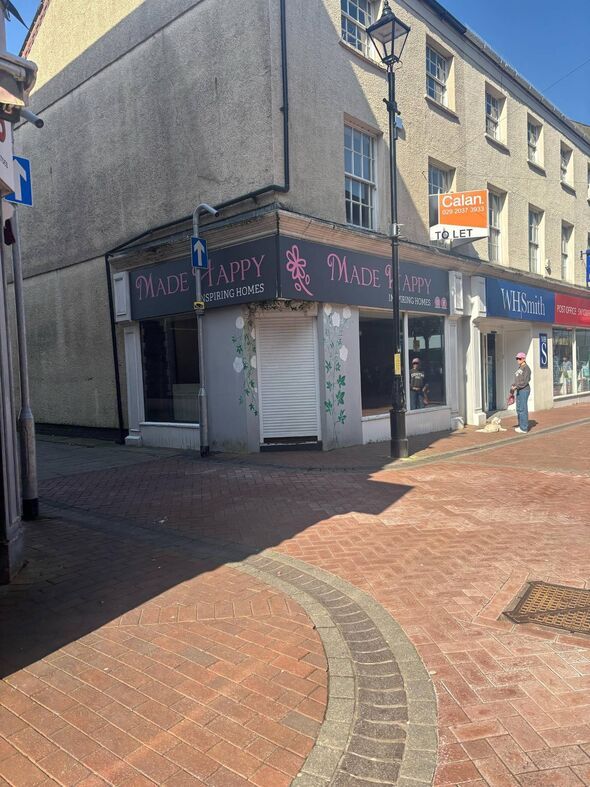
Jonathan also noted that the closure of Marks and Spencer, right opposite the market's main entrance, has hit them hard.
"It was a huge blow," he said. "People loved the Food Hall, it brought people in from all over. And when they came for Marks, they'd often pop into the market too. We just bounced off each other. Since it closed, we've definitely seen a drop in footfall."
Over at Trendy Tots, the care and craftsmanship behind every item on display was impossible to miss. The stall is well known for its beautifully made baby knits-bonnets, cardigans, booties-all meticulously arranged. Claire, who's been knitting for the stall since she was 14, was busy working on a new piece while I visited. Her fingers moved quickly and confidently with the knitting needles, each stitch adding to the growing pattern in her hands.
Pam echoed Jonathan's observation on how quiet the market has become with the closure of Marks and Spencer, saying it "adds a nail to the coffin."
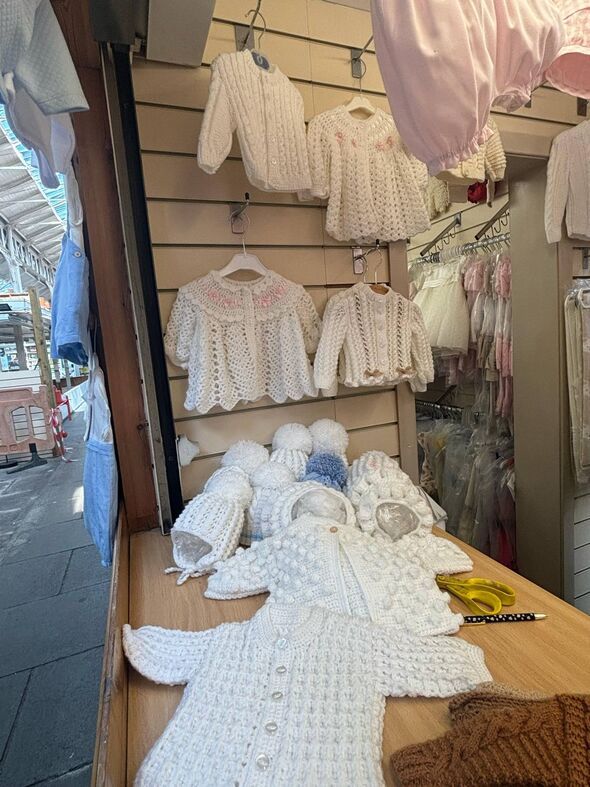
"Everything was finally getting back to normal after Covid 19," Pam said. "So when Marks closed, it was dreadful, it has gone extremely quiet here. I have been here 42 years and I have never seen it like this. Years ago, we weren't able to pass over the aisle to make ourselves a cup of tea because it was so jam-packed here."
Pam is wary of how online shopping is changing things: "Youngsters need to be careful. Continuing to online shop will eventually mean that businesses like this will no longer exist. Then prices will go up and you won't have any choice but to pay them because we won't be here anymore."
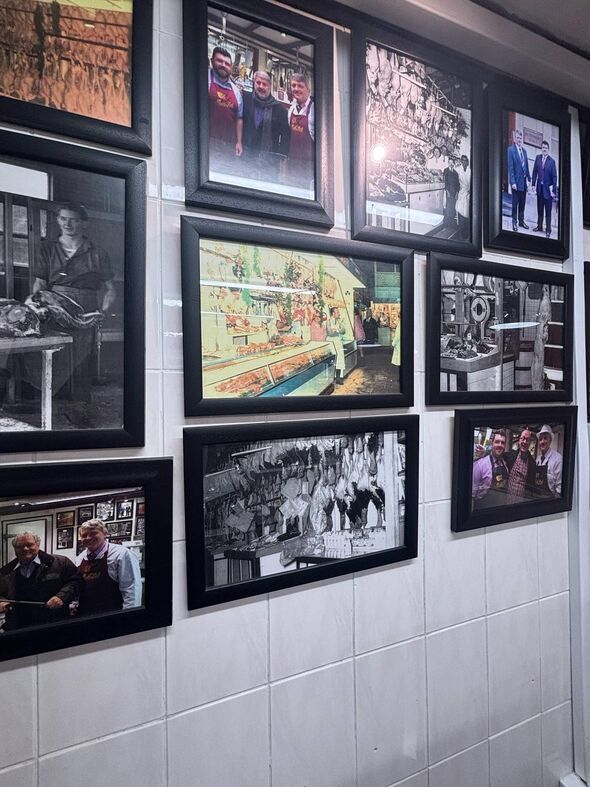
Adaptation has been key for Paul Cole Family Butchers, an award-winning business and mainstay of the market since 1928. Paul said that even the way they sell meat has had to change with the times.
"I have been around the butchers since I was seven or eight years old," . "Back then, we had meat handing from hooks and all the traditional cuts."
Now the display is sleeker, more tailored to modern tastes-with marinated options showcased in glass cases. However, Paul went on to admit that it had grown quieter over the year, pointing to online shopping as a serious challenge.
"It's killing off the high street," he said. "But you have to lift yourself above it. We started putting offers up on Facebook and found that it really did make a difference. That's the thing: to make things work, you have to make the necessary changes."
Paul remembered the days when the town would come alive before rugby became professional in Wales and the town's main team was swallowed up by a new regional team.
"People from all over would come here and watch Neath play," he said. "Llanelli, Swansea, Cardiff, Bridgend - you name it. Farmers who came to watch would pop in the market. It would be bouncing."
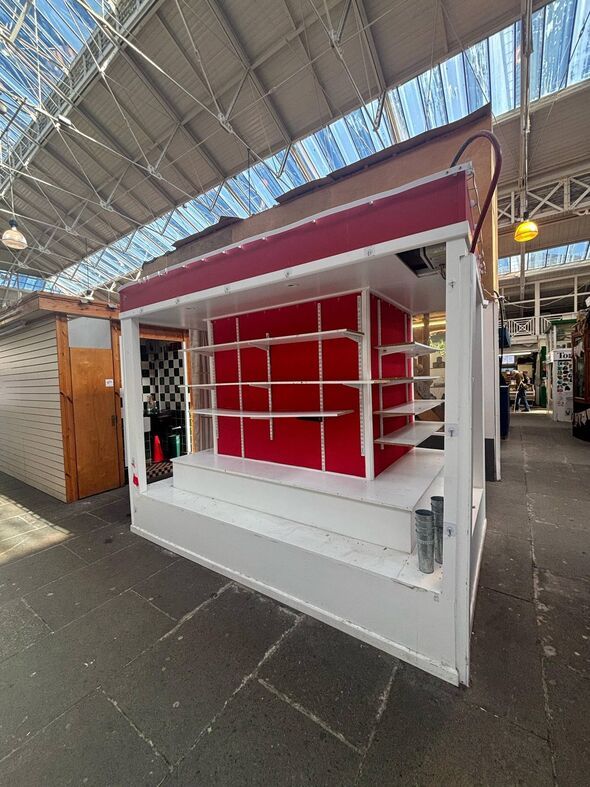
Martyn Morris, Neath RFC legend and former rugby union international, painted a picture of how he remembers the town: "Back when in the 80s and 90s the crowds watching the rugby ranged from 5,000 to 10,000, especially when the derby like Llanelli was on. It would have a knock on effect on the businesses, men would bring their wives and they would go shopping in the market, then they might meet up with them afterwards for food and a drink. The rugby and the town worked together to generate commerce."
It's also important to note that the market isn't dying, not by a long shot. In fact, over the past few months, there have been new additions, including a card shop and a beautician's stall. My gran, who's still a regular customer and knows the market better than most, described it simply as "lovely."
She told me: "I rarely come into Neath these days, because all I really see is the charity shops and vape shops. The only thing we have is the market and it's lovely to see new businesses come through the doors. I hope this is something that just continues - it is such an important part of our town."
Beyond the market, there's still a vibrant network of independent businesses that locals need to continue supporting. From family-run cafes and pet stores to boutiques, bakeries, and barbers; these shops are more than just places to buy things - they're run by locals who know their customers by name, who invest in the community, and who care about its future.
Hywel Griffiths, one of the owners of Zoar's Ark said: "Please don't forget that Neath is very lucky to have a very large number of independent shops: Zoar's Ark Pet Superstore, Paul Cole Family Butchers, Miss Jones Boutique, Brew and Co, Rosa's Bakery, Monty's Coffee Neath, Neath General Market, Hansons.
"It's still a place with massive community spirit! And all those mentioned above and others work hard to help keep the community thriving. We are lucky to have these type of businesses operating in town. It's easy to run it down! Neath obviously has its issues, but when you compare it with places like Port Talbot, Bridgend and Llanelli, there really is a lot to be thankful for."
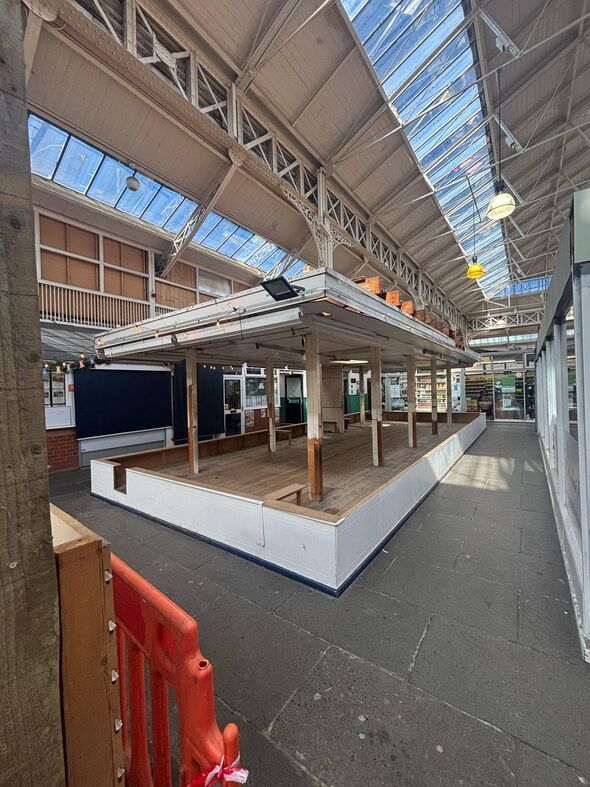
A Neath Port Talbot Council spokesperson said: "The council has been working hard to combat the well-publicised issues affecting high streets and town centres across Wales and the UK due to a range of issues including the rise of online shopping and the cost of living crisis.
"In Neath, the council's multi-million pound re-development of the historic town centre backed by grant aid from the Welsh Government's Transforming Towns programme has seen the successful delivery of a swimming pool, leisure centre, gym and modern library. Popular bar-lounge-restaurant chain Loungers has been among those opening outlets in the leisure and retail complex. It's an exciting project which has increased town centre footfall (with 2,300 new members at the leisure centre - 1,300 more than in the previous centre) during the day and evenings and introduced a broader mix of users,
"In addition the multi-story carpark is now open later in the evenings to help support the leisure centre and the local night time economy. The development in is being closely looked at across the UK as financially hard-pressed councils throughout Britain seek ways to invigorate their struggling high streets.
"The Town Centre Management Team is dedicated to promoting and enhancing the economic, social, and cultural vitality of Neath and our other town centres and can provide a range of services and resources to help local businesses succeed and is currently working on making improvements to Neath Market.
"In recent years, first class cricket has been attracted to Neath's town centre Gnoll Ground with Glamorgan staging two matches a year at the venue, bringing in thousands of extra visitors.
"There are a number of events held annually in Neath's town centre boosting footfall, including the Great September Fair (one of the oldest chartered fairs in Europe), the Neath Food and Drink Festival, the Neath Real Ale and Cider Festival and a number of music events. To help improve the economy, in order to help our traders, the council has delivered some spectacular inward investment successes including, with partners, achieving Freeport status for Port Talbot's docks and harbourside, something which could create over 10,000 jobs for south west Wales. The Freeport was officially launched last week and is currently gearing up to supply the rising Floating Offshore Wind (FLOW) industry in the Celtic Sea."